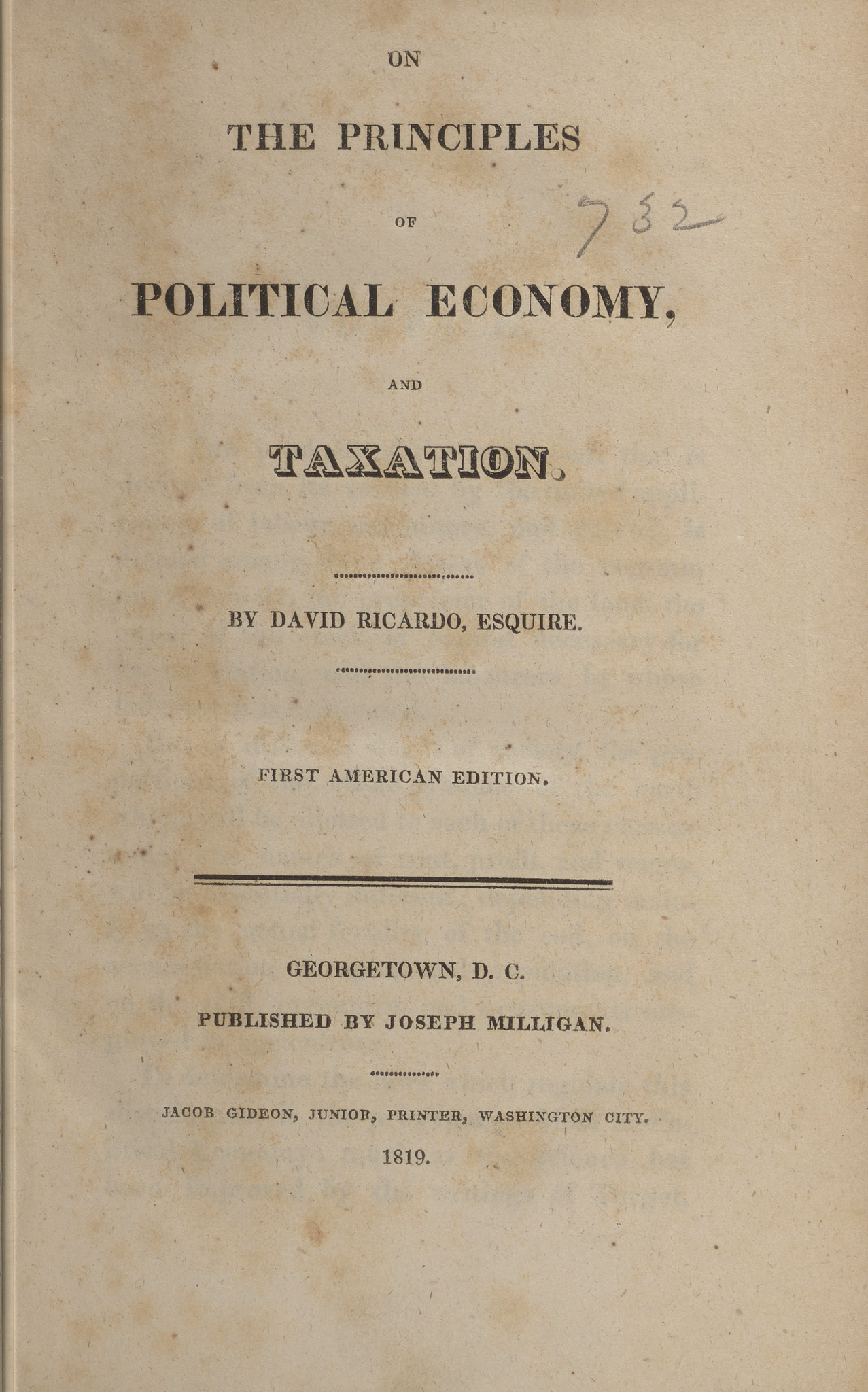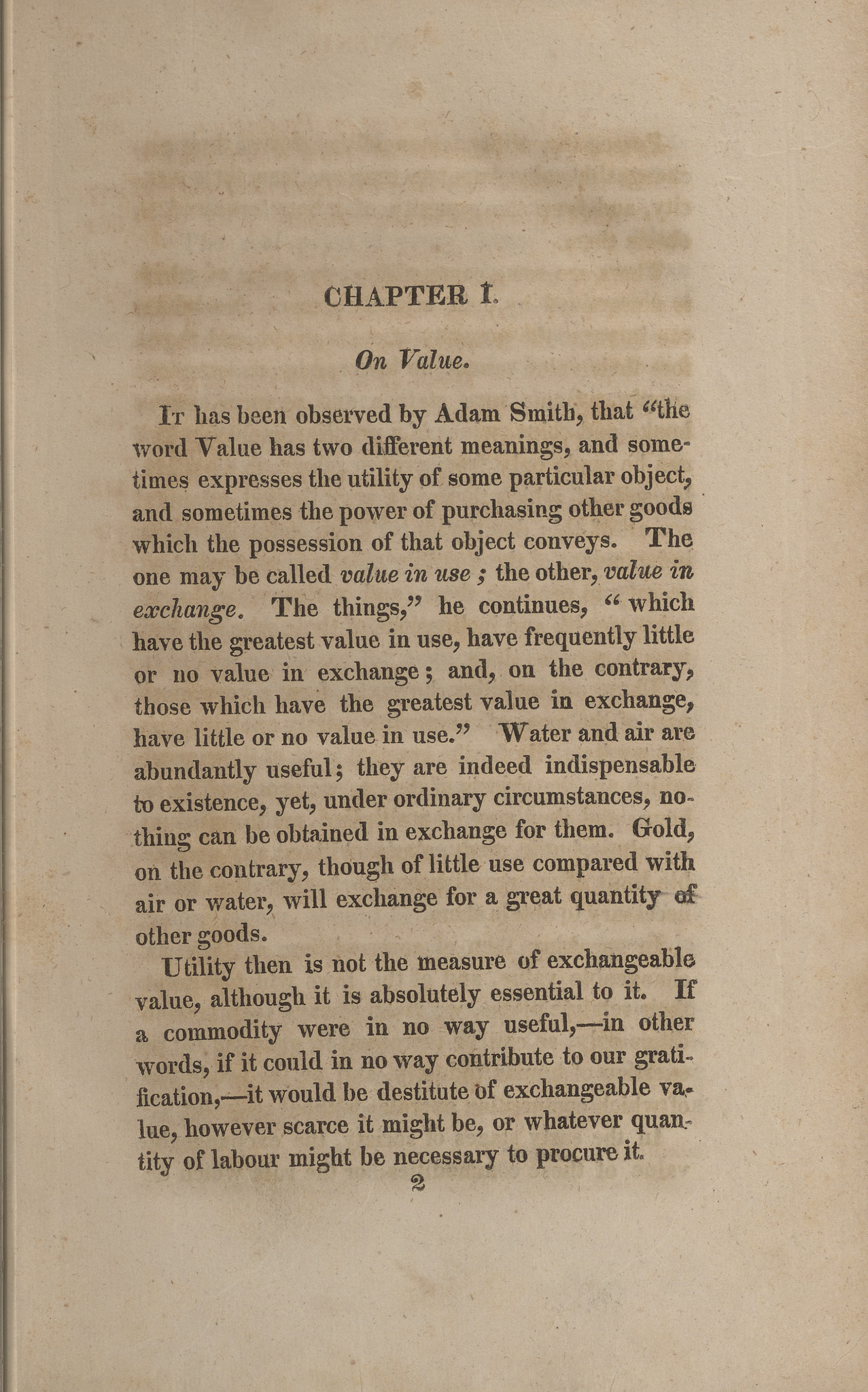Pictured here are the opening pages of On the Principles of Political Economy and Taxation, originally published in England in 1817. Its first American edition, shown here, arrived only two years later. The author, David Ricardo (1772-1823), was one of the foremost of the classical political economists, usually ranked with Adam Smith, James Mill, and Thomas Malthus (the latter two of whom were his friends and correspondents). He was born into a Sephardic family that had moved to London from Amsterdam, and as a youth he accompanied his father Abraham to the Jews' Walk of the London bourse, pursuing an early career as a stockjobber. His marriage to Priscilla Ann Wilkinson, a Quaker, meant separation from the Jewish community, and his new identification as Unitarian meant that he was later eligible for a seat in the House of Commons (although legal action was required to exempt him from the Anglican rite).
Unlike Smith, who made his name as a professor of moral philosophy with his Theory of Moral Sentiments (1759) before turning to the Wealth of Nations (1776), Ricardo comes to prominence with treatises on bullion and corn prices. And in contrast to Malthus, whose notorious Essay on the Principle of Population (1798) contains probing theological inquiries, one searches Ricardo's Principles in vain for any hint that the problem of "value" has roots in moral discourse and significance for philosophy and religion. Indeed, Ricardo seems to come out of the blue as a secular economist. But for precisely this reason, his work can stand as a fascinating entryway into the story of the secularization of economic thought, and a marker of the paths to social and financial success open to (former) Jews in the England of the early nineteenth century.

